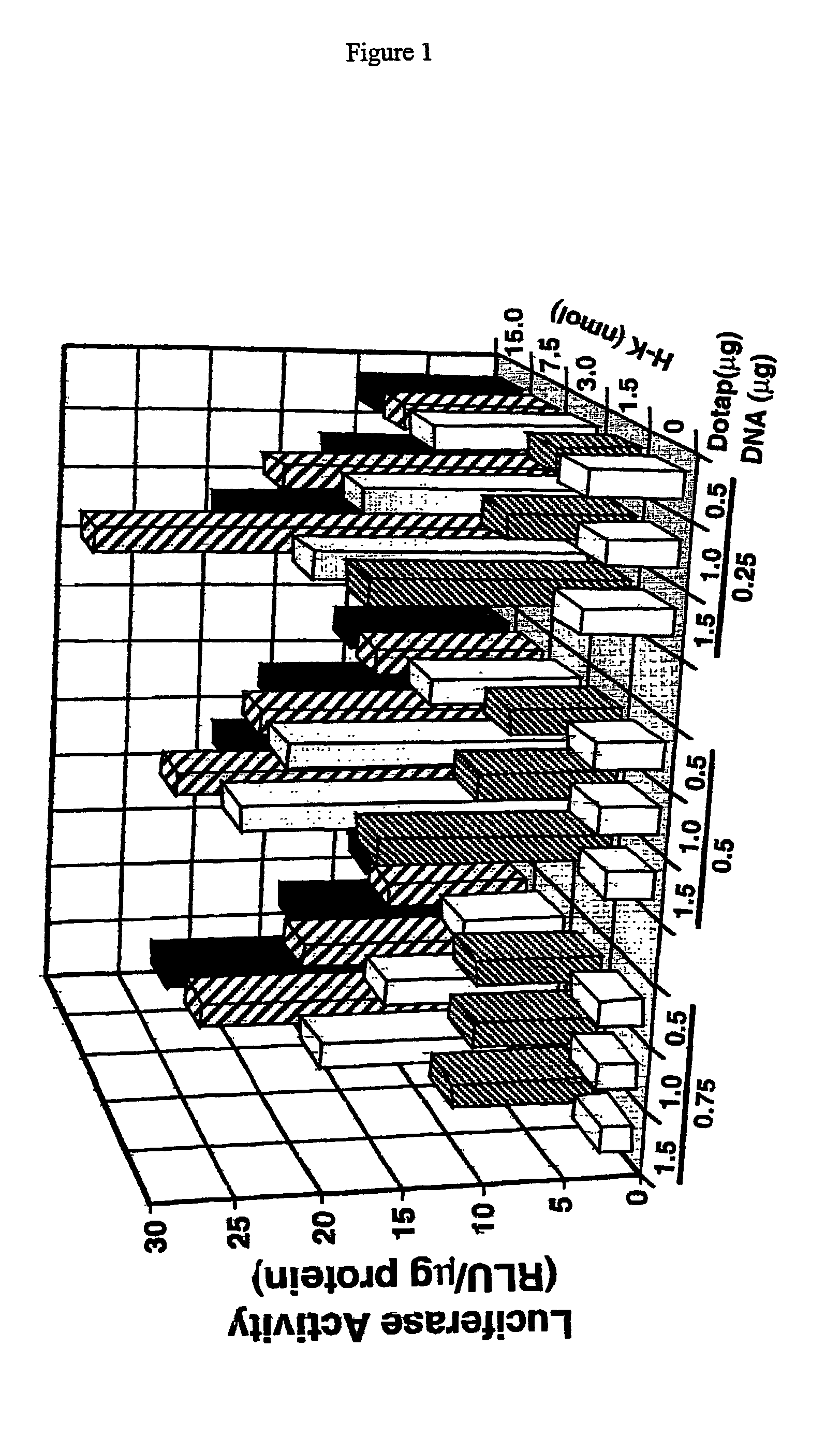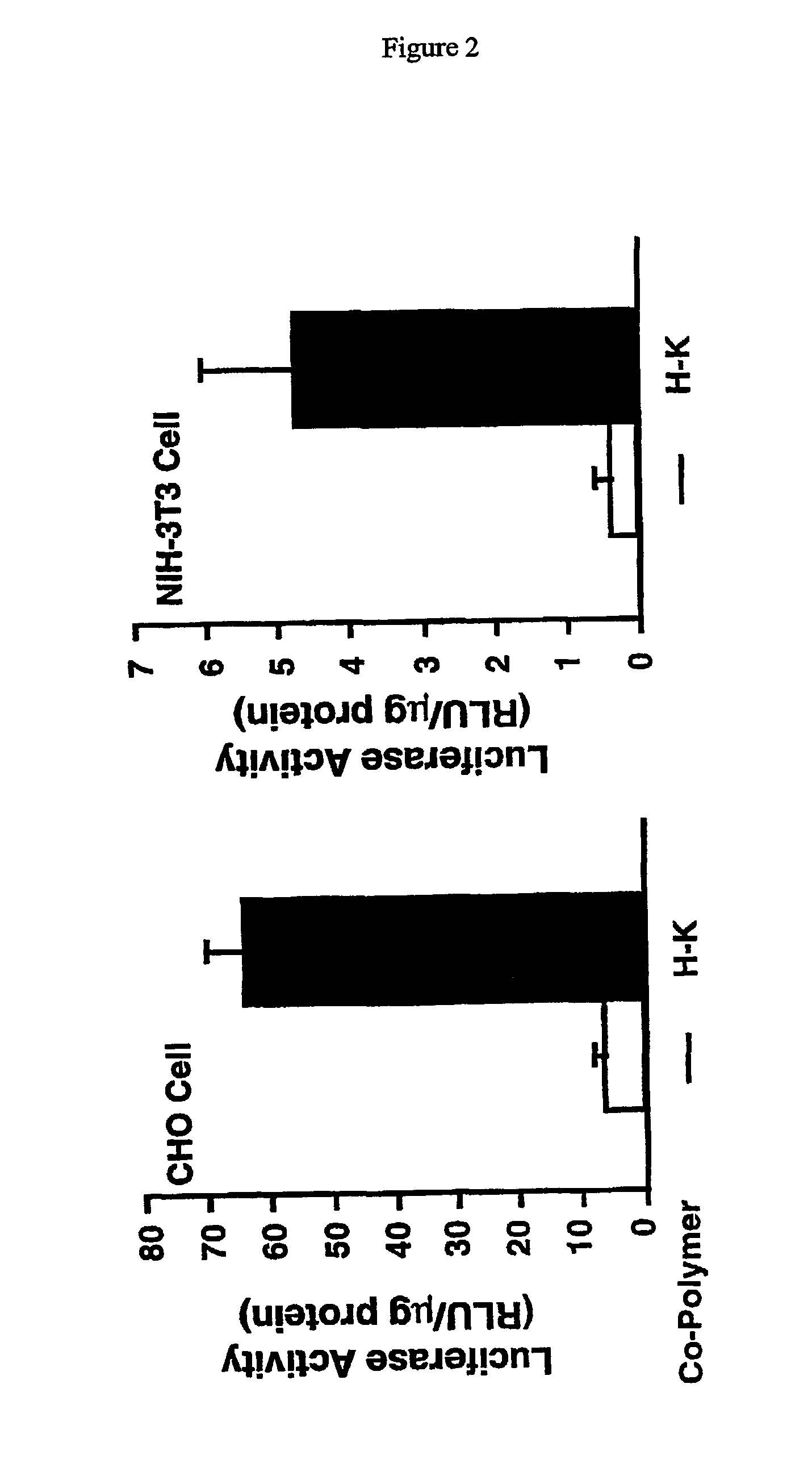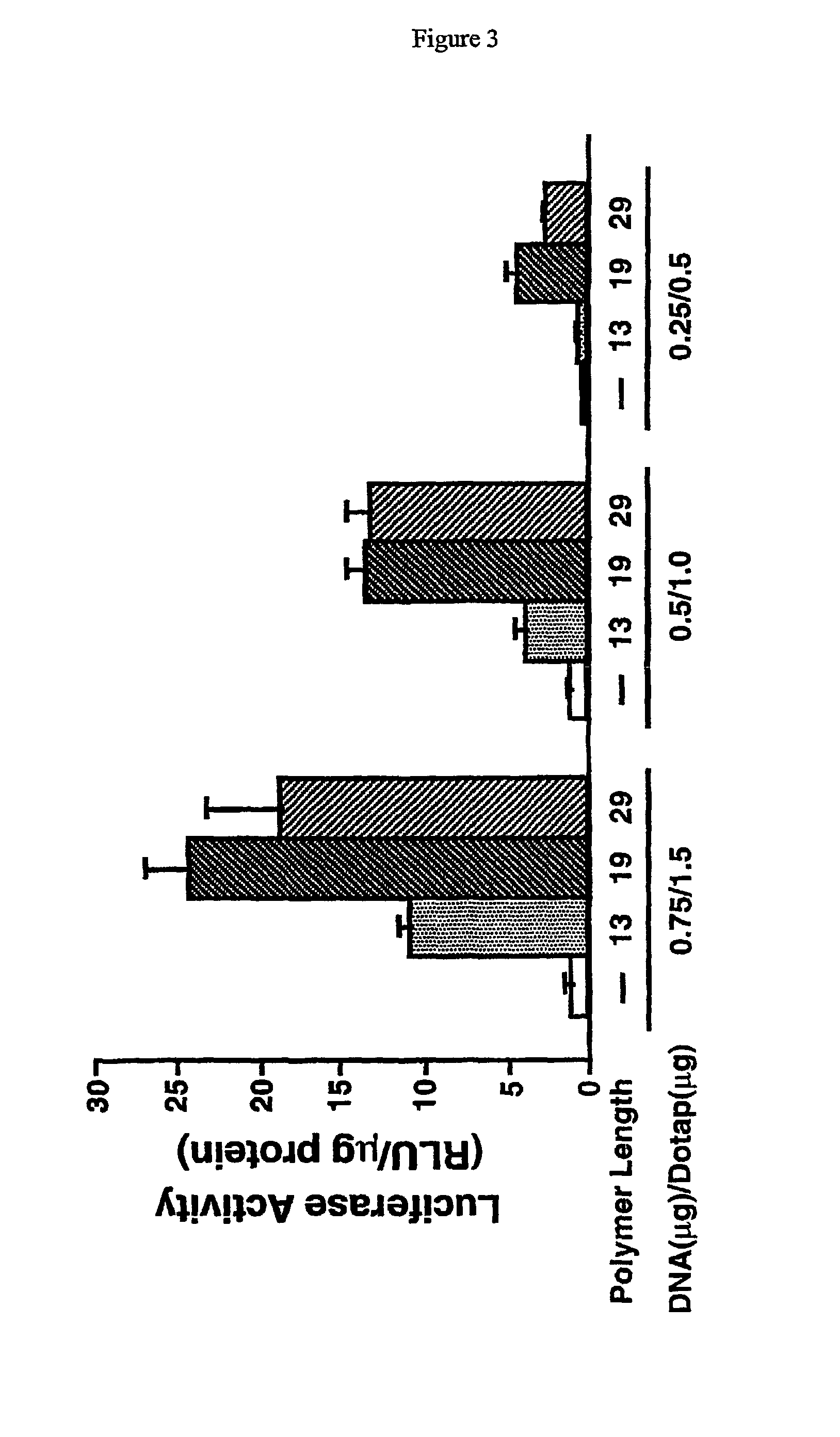Histidine copolymer and methods for using same
a technology of histidine and copolymer, which is applied in the direction of powder delivery, dna/rna fragmentation, peptides, etc., can solve the problems of reducing the efficiency of transfection in the presence of serum, major obstacles remain, and the progress of gene therapy is limited, so as to prolong the in vivo half-life of cationic liposomes and enhance transfection
- Summary
- Abstract
- Description
- Claims
- Application Information
AI Technical Summary
Benefits of technology
Problems solved by technology
Method used
Image
Examples
Embodiment Construction
5.1 Definitions
[0046]The term “amino acid” is inclusive of the 20 common amino acids, as well as “nonstandard amino acids,” for example, D-amino acids and chemically (or biologically) produced derivatives of “common” amino acids.
[0047]A compound is “associated with” a second compound if the two compounds have formed a complex as a result of covalent or non-covalent interactions between the two compounds.
[0048]The term “copolymer” refers to a polymer that contains two or more types of units, regardless of the arrangement of units along the chain (random, alternating, block, graft), and regardless of its molecular structure (linear or branched). The term “histidine copolymer” means that the copolymer comprises histidine as one of its unit types. The term “transport polymer” means a polymer comprising the histidine copolymer of the invention.
[0049]The term “peptide” is inclusive of both straight and branched amino acid chains, as well as cyclic amino acid chains, which comprise at leas...
PUM
| Property | Measurement | Unit |
|---|---|---|
| pH | aaaaa | aaaaa |
| pH | aaaaa | aaaaa |
| time | aaaaa | aaaaa |
Abstract
Description
Claims
Application Information
 Login to View More
Login to View More - R&D
- Intellectual Property
- Life Sciences
- Materials
- Tech Scout
- Unparalleled Data Quality
- Higher Quality Content
- 60% Fewer Hallucinations
Browse by: Latest US Patents, China's latest patents, Technical Efficacy Thesaurus, Application Domain, Technology Topic, Popular Technical Reports.
© 2025 PatSnap. All rights reserved.Legal|Privacy policy|Modern Slavery Act Transparency Statement|Sitemap|About US| Contact US: help@patsnap.com



